Published on April 25, 2018. Last Updated on October 21, 2021.
What is Aloe Vera Barbadensis: Aloe vera barbadensis has been treasured as a sacred botanical since ancient times, revered across many cultures for its numerous health and healing properties for the hair and the body as a whole. There are plenty of aloe vera benefits for hair health and aloe vera benefits for hair growth and more that you can find useful in your beauty routine.
Mythology & History Behind Aloe Vera: “The Blood of the Gods”
The juice from the aloe vera plant has been called the “Blood of the Gods.” Aloe vera has also been referred to as “the plant of immortality.”
It has earned the name kumari in Sanskrit, which translates as the word princess, implying the plant’s anthropomorphized feminine and regal existence upon the physical plane. Native Americans thought of the pointy plant spears as each being a “wand of heaven,” using the aloe vera juice to beautify as well as protect their skin and hair from the sun and adverse weather.
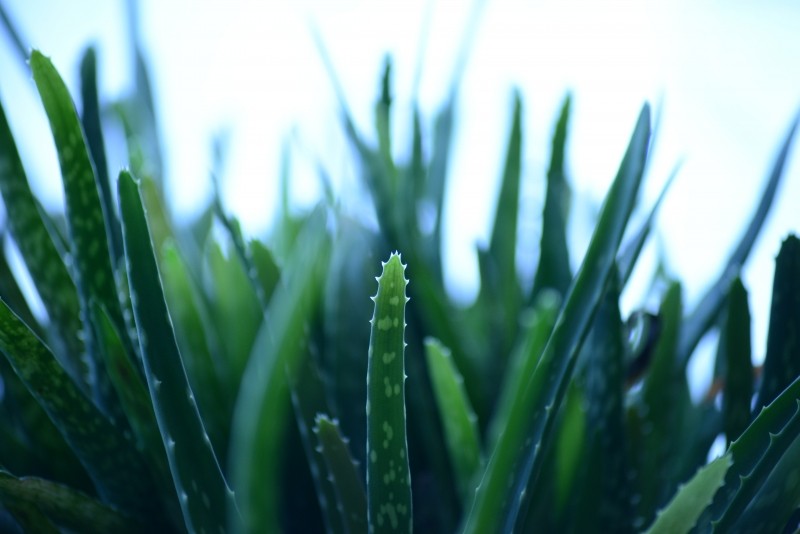
The ancient Greeks used aloe vera as a natural hair loss treatment. In Egypt, these plants were drawn on temple walls, where they were depicted as spiritual offerings to the deceased. Legendary queen Cleopatra used aloe vera as a regular part of her beauty ritual to achieve silkier hair and softer skin. According to ancient texts, the aloe plant held the secrets to health, beauty, and even immortality.

The rich lore and mythology surrounding the health and hair-enhancing properties of aloe vera are fascinating without a doubt.
Today, modern scientists are furthering humanity’s interest in aloe’s healing capabilities. Through the lens of research, they look into the benefits offered by the aloe vera barbadensis species. These efforts reveal some relatively positive findings for the plant’s potential to support the hair’s overall health.
Aloe Vera Hair Benefits: Research Findings
Several major research studies document the use of aloe vera extracts (either directly or as contributors) to enable significant improvements in the hair’s health and the scalp, which may place aloe vera as a possible candidate for hair growth.
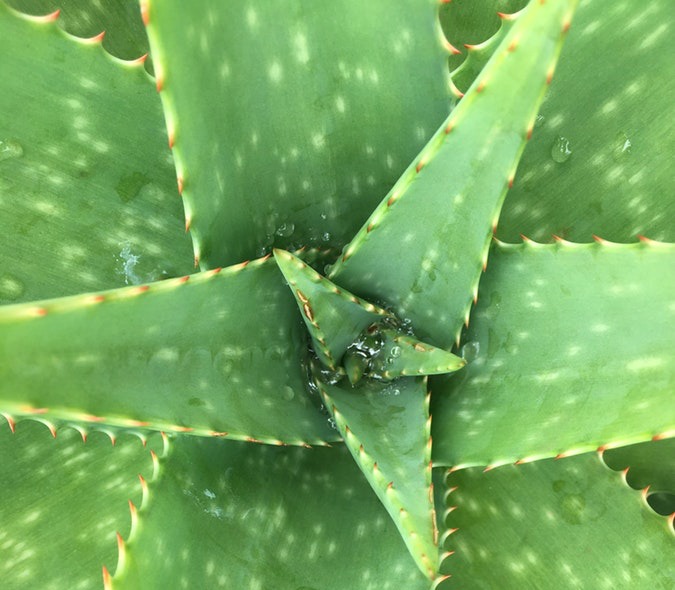
STUDY: Can Aloe Vera Barbadensis Help Improve Hair Loss Due to Inflammation?
One research study ¹ observed the results of using a topical herbal formulation that included aloe vera barbadensis as one of the key ingredients. Others included Acacia concinna, Eclipta alba, Emblica Officinalis, Lawsoni ainermis, and Nadosstachys jatamansi. 50 participants took part in this study. They were each diagnosed with mild to moderate hair loss, along with dandruff, a symptom related to inflammation that adversely affects the follicles.
The subjects were asked to massage the formula onto their scalp and leave it for 30 minutes before rinsing it off. This was repeated twice a day for 7 weeks. 75% of the subjects reported that they experienced a noticeable improvement in their hair loss and the main symptoms of their dandruff condition, which included scalp dryness, irritation, and itching. Interestingly the subjects also noticed an increase in their hair tensile strength.
Since aloe vera barbadensis was one of several ingredients used in this study’s herbal mixture, it is unclear what exact role it played in the final results.
Nonetheless, the decreased hair loss and improved dandruff symptoms due to plant-based ingredients, including aloe vera, is still a significant finding, especially for men and women hoping to find more natural, non-synthetic forms of treatment for scalp inflammation and hair shedding issues.
Oral Consumption of Aloe Vera Fosters Hair Growth In Sheep
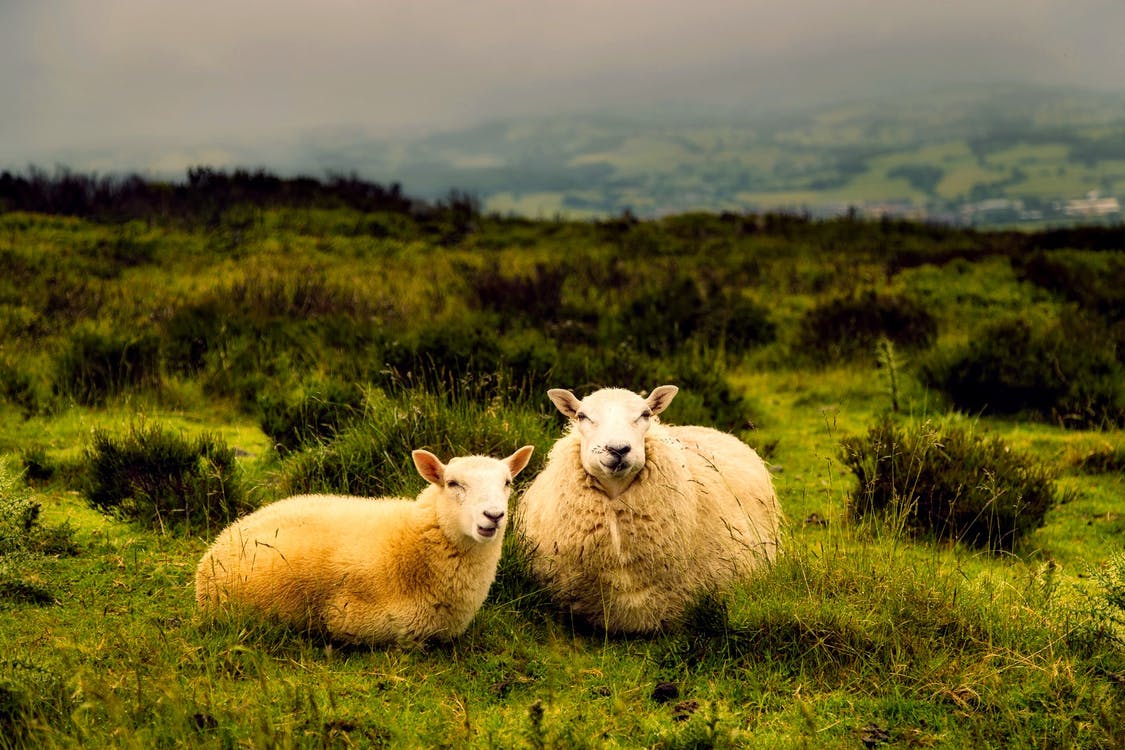
One interesting animal study focused on the internal consumption of aloe vera juice on hair loss symptoms.
The scientists studied a sample of 40 sheep ² who displayed alopecia (hair loss) symptoms due to the progression of various skin diseases and administered aloe vera orally to these animals twice a day. After just 15 days, 90% of the sheep showed significantly noticeable hair growth in the areas affected by alopecia.
The authors of this study attribute the observed hair growth effects on the presence of enzymes, enthralls, and mucopolysaccharides within the aloe vera plant.
Although the new hair seen on the sheep is certainly a remarkable phenomenon, generalizing the correlation between aloe vera and hair growth to humans would require further research.
A Double-Blind Research Study Tests an Aloe Vera Hair Treatment for Its Effects on Seborrheic Dermatitis
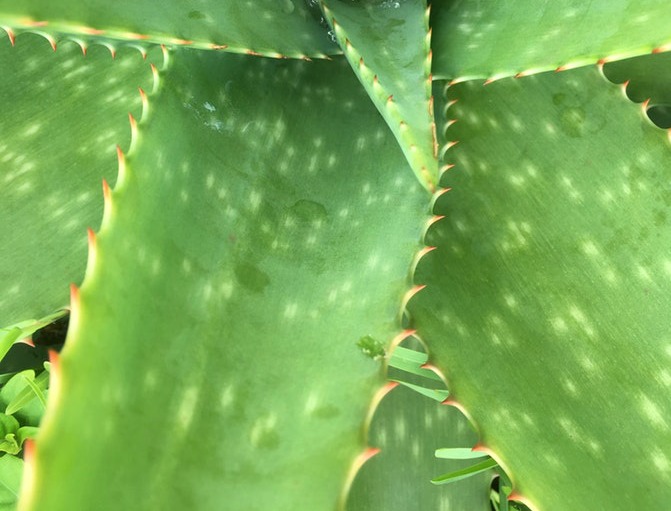
Seborrheic dermatitis is similar to dandruff but with more extreme symptoms, including large greasy grayish, white, or yellow skin scales and patches of crustiness. Affected individuals also experience severe forms of redness, itchiness, and even burning sensations.
An overgrowth of skin yeast causes both seborrheic dermatitis and dandruff. While dandruff is associated with the Malassezia organism, seborrheic dermatitis may be caused by either Malassezia or Pityrosporum.
The presence of these microbes will trigger the body’s inflammatory responses to destroy these invading organisms. However, the continuous production of sebum will continue to support their overall growth and proliferation. In addition, the yeast and the high oil production in the skin contribute to inflammation that may attack the hair follicles and lead to subsequent hair loss.
In one published overview of aloe vera gel’s clinical uses and proposed action mechanisms ³, a mixture of 30% aloe vera prepared as a hydrophilic emulsion is cited as an effective treatment for seborrheic dermatitis when it is topically applied two times a day to the affected area.
According to this source, the mechanism of action attributed to the active aloe vera ingredient is due to its ability to stimulate two types of cells:
- Macrophage cells which engulf foreign microbes
- Collagen-producing fibroblast cells, which help rebuild and renew the scalp’s skin surface.

In a double-blind study ³, 44 adults with seborrheic dermatitis were treated with a topical emulsion consisting of aloe vera barbadensis (30% crude extract) as the main active ingredient.
Participants were required to apply the treatment twice daily for 4-6 weeks. The double-blind research design meant that neither the participants nor the researchers knew which treatment was being administered to specific subjects. The results of this study show that the participants who received the aloe vera treatment experienced a marked improvement in seborrheic dermatitis symptoms like scaliness (p<0.008) and pruritus (p<0.046), but no erythema.
The authors of this double-blind study concluded that a crude extract emulsion of aloe vera could be considered an effective form of treatment for patients suffering from seborrheic dermatitis. For the treatment of dandruff 4, researchers recommend an aloe vera preparation as a 0.5% gel within a hydrophilic cream.
Study on Aloe Vera Barbadensis As a Natural Anti-Microbial Ingredient For Hair Products
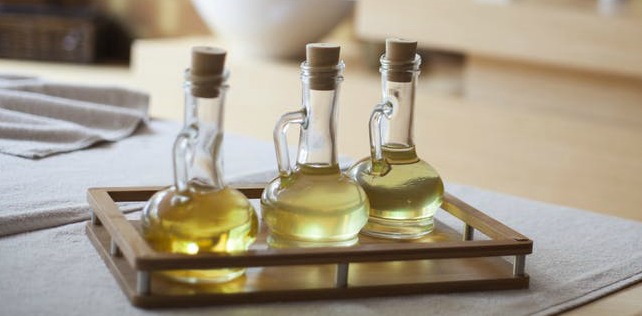
Many skin and hair products boast the use of aloe vera as one of their ingredients. But does this labeling only heighten the allure of these products? Or does aloe vera play a beneficial role in the consumer’s skin and hair? A group of researchers decided to investigate these questions further 5.
Before the study, they identified the two main chemical compounds in aloe vera barbadensis which are most likely to have pharmaceutical effects:
- Flavenoids – plant metabolites (end products of metabolism resulting from enzyme reactions
- Alkaloids – naturally occurring, nitrogen-containing organic compounds with diverse effects often used or replicated for pharmaceutical applications.
The researchers used disc diffusion to successfully isolate the alkaloid and flavonoid compounds from the aloe vera pulp. Then, these extracts were applied to different strains of infectious or disease-causing bacteria, including S. aureus, B subtilus, Streptococcus sp., S. Typhi, and E.coli.
The aloe vera compounds were shown to be quite effective at killing these micro-organisms. Therefore, this study concluded that aloe vera could be used as a natural substitute for certain types of antibiotics. Furthermore, the results support the addition of aloe vera as a hair treatment in products like shampoos, moisturizers, and soaps.
Inflammation due to the presence of bacteria can harm the hair follicles and undermine their ability to grow healthy hair. Therefore, hair products with aloe vera as an ingredient can indeed help to counter these harmful processes.
Aloe Vera For Hair As A Sun Protectant
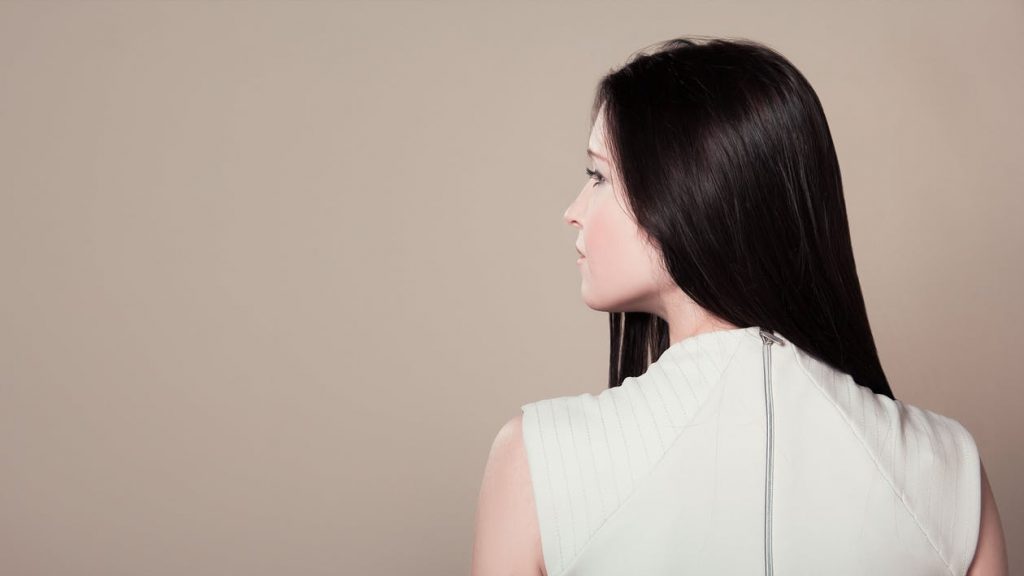
Scientists are starting to find that UV rays from sunlight change and denature the hair’s protein structures. Prolonged exposure over time will result in more brittle, rough texture, breakage, decreased shine, and elasticity.
FS Daud and SB Kulkarni, the authors of a study on the sun protecting properties of aloe vera 6, explained that although synthetic compounds exist which have been studied for sunscreen activity, “the need for exploring an agent from a natural source was thought to be important.”
Their research study confirmed that aloe vera could act as a sun and UV protectant for the hair, especially if the aloe vera used is natural and unprocessed.

The research team observed the effects of UV-simulated sunlight on different types of Asian hair strands. They also tested and compared the results of using processed and fresh aloe vera juice.
Researchers used a lamp that emitted UV simulated sunlight on different types of Asian hair:
- Untreated with chemical dyes (black)
- Grey hair colored with henna and washed
- Grey hair treated with artificial chemical colorant and washed
Sample hairs were placed on glass slides and exposed to a lamp that emits both UVA and UBA light.
An identical group of hairs (as above) were treated with fresh aloe vera barbadensis juice.
A third group (identical to the above) was treated with processed juice from the same species of aloe vera.
The researchers measured chemical damage as protein degradation in terms of tryptophan content. Mechanical damage was also noted as changes in physical properties and texture.
The untreated hair (no dye, no aloe vera) experienced the most damage. The least amount of damage was experienced by chemically colored treated hair that received fresh aloe vera juice.
Processed aloe vera barbadensis juice also offered photoprotection, but not as much as the fresh aloe vera juice. This observation further emphasizes how the UV protecting compounds within the unprocessed aloe vera juice to be more effective in UV protection. Therefore, to maximize aloe vera’s UV protection qualities, it is best to use products or treatments which utilize cold-pressed or cold-formulated aloe vera rather than processed aloe vera to keep as much of these UV protecting qualities as possible.
Side Effects of Aloe Vera
Although aloe vera is generally safe (for oral and topical use), it still has associative side effects to be aware of.
Unprocessed aloe vera leaves contain a natural form of latex beneath the skin, inducing allergic reactions.
Also, aloe vera should be used with caution in pregnant or lactating women. Oral consumption in these groups has been linked to congenital disabilities and even miscarriage. Long-term ingestion at high doses may result in
- Diarrhea
- Kidney issues
- Low potassium
- Muscle weakness
- Blood in the urine
Safety Profile for Aloe Vera
The (EWG) Environmental Working Group’s Skin Deep Rating System educates the public on the safety of ingredients used in beauty and food products. Aloe vera earned a 1-3 on their scale (dependant on usage).
The organization cites FDA publications that consider aloe vera “safe for general or specific, limited use in food.”
Also, at specific concentration limits, aloe vera is regarded as safe for use in cosmetics.
However, certain open scientific publications suggest that aloe vera may be a potential carcinogen. Yet, the evidence thus far is inconclusive due to data gaps.
Other Ways To Use Aloe Vera
As a well-known natural moisturizer, Aloe Vera juice softens both the hair and the skin. It also contains salicylic acid, which may work as a gentle exfoliant. Incorporate it into your beauty and grooming routine as a
- Refreshing skin toner right after you wash your face.
- Replenishing hand moisturizer
- Sprayable hair softener to tame dryness and frizz (i.e., mix store-bought aloe vera gel with water in a spray bottle) Aloe vera juice is a rich source of antioxidants, helping fight the effects premature aging.
It also works to
- Alkalinize and detoxify our internal system
- Reduce cholesterol
- Fight inflammation
- Boost our immune system
If the taste of plain aloe vera juice does not excite you, try using it in
- A smoothie recipe
- Lemonade with a healthy sweetener such as stevia or maple syrup
Many people notice improvements in their skin due to aloe vera juice. However, due to its potential side effects, be sure to monitor and regulate how much you consume. If you are serious about reaping the benefits of aloe vera in your beauty routine, be sure to consider how it is processed and whether or not its bioactive properties are still sound.
Conclusion – Aloe Vera Hair Benefits

The clear, viscous juice from the aloe vera is packed with numerous restorative and healing compounds that benefit the body in many ways. In addition, a growing number of research studies continue to unveil the effectiveness of aloe vera on various aspects of hair health, supporting its immense potential as an effective treatment ingredient for the scalp, follicles, and hair strands.
Medical Journal Publishes Report on Gashee Hair Lotion
A medical journal called Case Studies in Dermatological Medicine published a report on 5 individuals who used our Gashee hair lotion to improve various hair conditions. Previously, four of them had tried conventional medication to no avail. After using our topical, cold-processed, photoactive formulation for 3-15 months, all five cases experienced noticeable improvements. Read more about our paper,“ A Multimodal Hair Loss Strategy Using A New Topical, Phytoactive Formulation.”
The healing and moisturizing effects of Aloe Vera are a must-have for your hair and follicles. Aloe works even better when cold-processed and combined with other select natural ingredients supported by research studies. So, where can you find a hair product with aloe vera and other natural supportive ingredients? Shop Dr.UGro Gashee’s store. Click the image below.
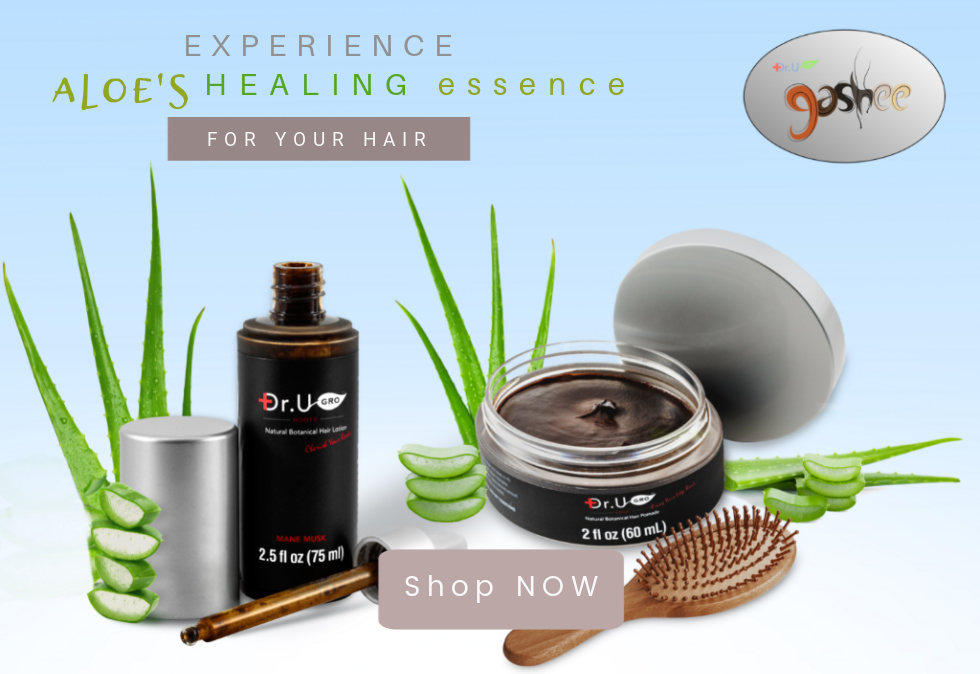
VIDEO: Dr.UGro GASHEE Lotion With Aloe Vera Restores This Woman’s Dry, Brittle Hair
Meet Laura, one of our Gashee True Life Stories. After reaching menopause, she noticed a drastic decline in the quality and moisture of her hair. She became unhappy with the thinning she was noticing as well as the dryness of her hair strands. Conventional medication did not help her.
The health of her hair turned around for the better after she started using our Dr.UGro Gashee hair lotion formulated with aloe vera and other nurturing botanical ingredients supported by research studies. Learn more about her experience by watching the video below.
In her words, Laura mentioned that before the treatment, her hair was “patchy, brittle,” and that she had “hair falling out,” a whole range of hair issues that suddenly changed after she began treatment using Dr.UGro Gashee oral supplements. In 14 months, Laura noted how “incredible, how fast” her hair “filled in.” She said that the texture was “stronger,” her hair wasn’t in her brush as normal, and that in “some places, the color was being enhanced.” “Really, it was a miracle,” and all it took was a “few seconds to drop a few drops on my scalp” every night.
Many others like Laura had completely transformed her hair health and appearance for the better using Gashee natural hair products.
The GASHEE Lotion Topical Laura used includes aloe vera, as well as a range of other natural plant-based ingredients formulated to maximize hair health and hair growth.
Dr. UGro Gashee: Before & After Pictures – Hair Restoration Results
Below is a before and after picture of another Dr.UGro Gashee Topical Lotion user who has had dramatic results for her hair. Note the improved fullness, length, texture, sheen, and shine of her overall hair health – after only 4 months of usage.
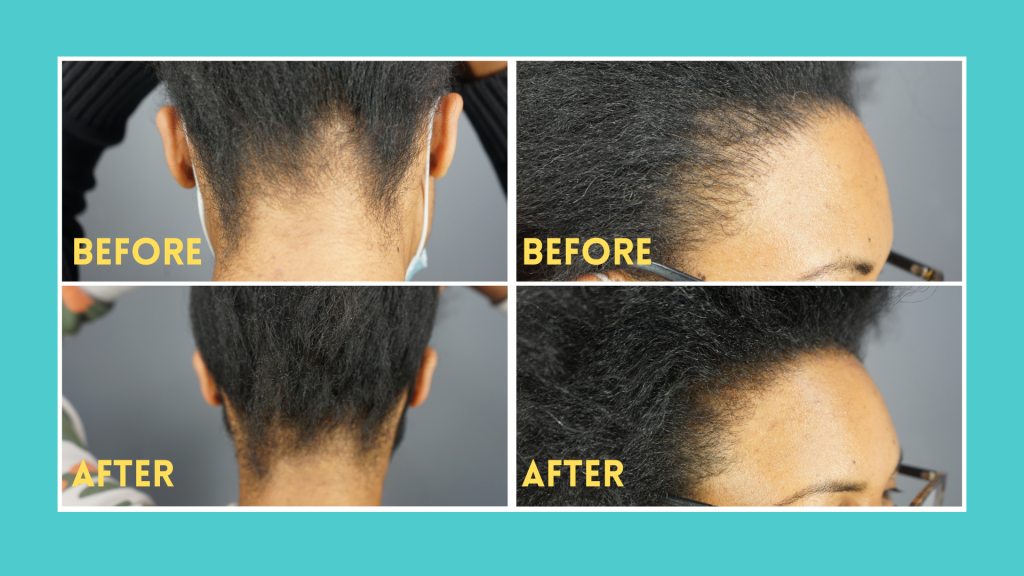
No matter the state of your hair, using GASHEE Topical Lotion or Pomade infused with aloe vera can drastically help your hair health for the better. Even if you already have hair health you are happy with, it is generally recommended to start taking care of your hair early on so you can enjoy the beauty and health of your hair for years to come.
FAQ – Aloe Vera Barbadensis and Healthy Hair
Will drinking aloe vera juice have positive benefits on my hair?
Aloe vera juice is rich in vitamins, minerals, enzymes, and anti-oxidants and surely offers a wide range of benefits for the entire body.
However, the effects of drinking aloe vera juice on the health and quality of human hair is not yet conclusive due to a lack of research in this area. Studies have shown that oral consumption of aloe vera can be helpful for hair health, but they also show that topical applications of aloe vera may possibly be a more effective remedy for hair health or hair loss.
If I want to use aloe vera barbadensis externally on my hair, what is the best way to do this?
The most common forms of aloe vera commercially available include the juice available in many health food sections and the skin gel. Unfortunately, both may leave a residue on your hair.
For the most optimized aloe vera topical treatment for your hair, we recommend Dr.UGro Gashee Topical Lotion or Pomade – both carefully formulated and cold-extracted to ensure the most natural and effective application of aloe vera for your hair health.
If I think my hair loss is caused by inflammation, will aloe vera help?
The research studies described above support the antimicrobial capabilities of aloe vera to help reduce hair loss from inflammation.
Since microbes trigger inflammation, getting rid of these foreign invaders will reduce the likelihood of triggering inflammatory responses that ultimately undermine the health and functioning of the hair follicles. Based on this mechanism, aloe vera is likely to help with hair loss issues related to inflammation.
But rather than investing your time and efforts entirely on a DIY approach to treatment, check with a dermatologist or a hair restoration specialist to rule out other factors that may be responsible for your hair loss, such as side effects from prescription medications, iron deficiencies, and other possible variables. If your hair loss is not caused by inflammation, a doctor would also be able to determine whether or not you are suffering from genetic pattern hair loss or other forms of alopecia.
What does aloe vera do for the hair when it is applied topically?
Each hair strand is made of protein structures arranged in intricate patterns around a central core holding water.
Because aloe vera is 95% water, it serves as a potent moisturizer. This adds hydration to the skin and condition, replenish, and repair dry hair.
Is it true that an aloe vera hair treatment could work as a reparative and moisturizing conditioner?
The nutrient-rich aloe vera gel contains a specific group of protein compounds with an overall composition similar to keratin. When applied externally to the hair, aloe is capable of helping to refortify the cuticles and restoring lost moisture.
Therefore aloe vera juice mixed with water can work as a natural type of leave-in hair conditioner when sprayed or gently massaged into the hair strands.
How to Use Aloe Vera as a Leave-In Conditioner
For this process, you will need water and aloe vera. You can buy aloe vera gel at your local drug store or if you prefer, you can also extract it directly from an aloe vera plant by cutting it and extracting the gel.
- Mix aloe vera gel and water:
Add 2 tablespoons of aloe vera gel
And 2 tablespoons of water to a bowl - Use a spoon to mix the gel and water together
- Keep mixing until you have a liquid that’s smooth and even throughout
- If you prefer to add essential oils to scent your conditioner, you can do so here (optional)
- Mix ingredients in a spray bottle and shake the bottle vigorously to mix all the ingredients together – keep shaking until everything is mixed uniformly
- Finally, you can use the gel in place of your regular hairspray:
- After showering and washing your hair, spritz on the gel when you would normally spray your hair in the morning
- You will be able to tell if your hair is responding well to the aloe vera gel because after applying it your har should feel slightly softer and more moisturized
Moisturizing your hair is a great part of any hair health or beauty routine. For the best effect on your hair, we recommend you use aloe vera directly sliced from an aloe vera plant, or use aloe vera that is not processed.
Further Reading:
References
- Madan A, Arun A, Verma S. A noncomparative open-label pilot study to see Vegetal Hair Well’s efficacy and consumer response in preventing hair fall and promoting hair growth. International Journal of Advanced Research 2014;2(2):475-81.
- Grundmann O. Aloe vera gel research review. An overview of its clinical uses and proposed mechanisms of action. Natural Medicine Journal 2012;4(9).
- Vardy AD, Cohen AD, Tchetov T. A double-blind placebo-controlled trial of Aloe vera (A. barbadensis) emulsion in the treatment of seborrheic dermatitis. J Derm Treatment 1999;10(1):7-11.
- Feily A, Namazi MR. Aloe vera in dermatology: a brief review. G Ital Dermatol Venereol 2009;144(1):85-91.
- Noreen S, Khan SJ, Chouhdary S, et al. Evaluation of Aloe vera barbadensis for its antimicrobial, phytochemical, and ethnobotanical status. J Med Plants Res 2012;6(49):5876-80.
- Daud FS, Kulkarni SB. Comparative evaluation of the photo-protective effect of Aloe vera Tourn. Ex Linn. on UV damage in different Asian hair types. Indian Journal of Natural Products and Resources 2011;2(2):179-83.



